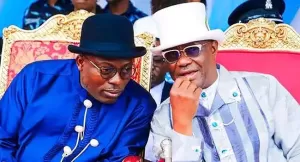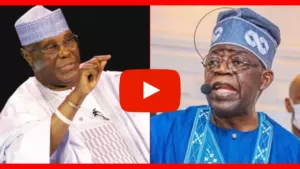Edo 2024: Countdown to Gubernatorial Election.

As Edo State approaches its governorship election on September 21, 2024, several political parties are actively campaigning. Dr. Asue Ighodalo of the PDP is highlighted for his vision to utilize the state’s mineral resources for development, with supporters praising his leadership capabilities. The APC, with candidates like Senator Monday Okpebholo, focuses on addressing regional grievances and promoting development. The Labour Party also presents itself as a progressive choice, challenging the established parties. There is a strong call for peaceful elections, with initiatives like radio town hall meetings aimed at encouraging voter participation and promoting a peaceful electoral process. The election is seen as a pivotal moment for Edo State, with voters urged to collect their PVCs and make informed decisions. The campaigns are marked by promises of development, leadership change, and addressing past administrative shortcomings.
The Edo 2024 Gubernatorial Election is scheduled for September 21, 2024, with the campaign period officially commencing on April 24, 2024, and concluding on September 19, 2024. Here’s the latest information and sentiment around the election:
- Voter Numbers: As of August 20, 2024, 2,629,025 voters are registered to participate in this election, indicating a significant electorate base with the potential for high voter turnout.
- Candidates and Parties: The election features candidates from multiple parties, with notable mentions including Asue Ighodalo from the Peoples Democratic Party (PDP), who has been highlighted in pre-election polls for leading in voter support. The All Progressives Congress (APC) has Senator Monday Okpebholo as their candidate, who is also gaining traction but trails behind in recent polls. The Labour Party (LP) has nominated Olumide Akpata, indicating a diverse field of candidates with various backgrounds and political ideologies.
- Public Sentiment and Campaign Focus: Recent posts and discussions on platforms like X reflect a mix of support and skepticism. There’s a notable push for Asue Ighodalo, with users emphasizing his manifesto and perceived competence. Conversely, there’s also support for Senator Monday Okpebholo, with some users advocating for his practical approach over what they describe as “big grammar and fake statistics.” This indicates a polarized electorate where candidates’ abilities, past records, and promises for the future are hotly debated.
- Election Integrity and Voter Confidence: There’s a mixed sentiment regarding the Independent National Electoral Commission (INEC). While some express confidence in INEC’s ability to conduct a fair election, others are skeptical, with concerns about potential rigging or external influences affecting the election’s outcome.
- Campaign Strategies: Candidates are employing various strategies, from town hall meetings to leveraging social media for outreach. There’s an emphasis on engaging with youths and women, as seen with events like the General Town Hall Zoom Meeting organized by candidates to discuss their plans directly with these demographics.
- Key Issues: Education, healthcare, security, and economic development are central themes in the candidates’ manifestos, reflecting the priorities of Edo’s electorate. Promises of free transportation, improvements in education and healthcare, and community development are highlighted, showing a focus on enhancing public services and infrastructure.
- Pre-Election Polls: A pre-election poll by the Africa Polling Institute indicated Asue Ighodalo leading with 43% support, with a significant portion of voters still undecided. This suggests that while there’s a lead, the election’s outcome could still swing depending on how these undecided voters are swayed.
The atmosphere around the Edo 2024 Gubernatorial Election is charged with anticipation, with candidates and parties intensifying their campaigns to capture the hearts and votes of Edo’s electorate. The election promises to be a significant event, not just for Edo State but as a barometer for political dynamics in Nigeria, given the attention it’s receiving from political analysts and the general public.







